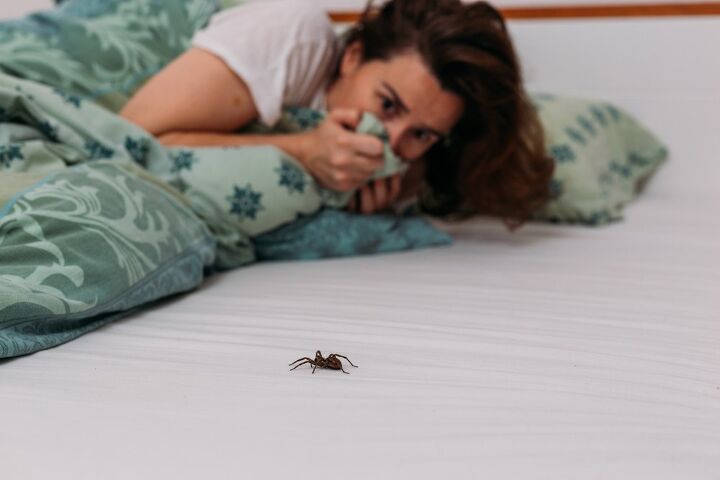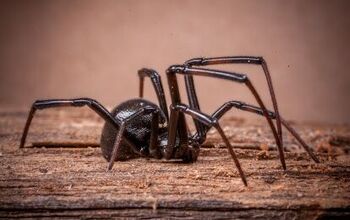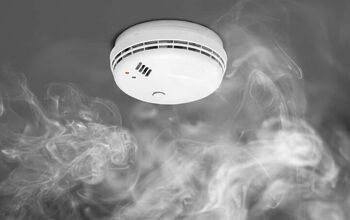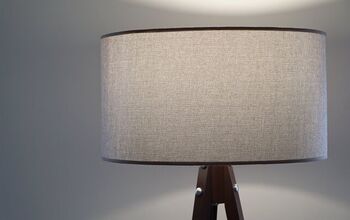How Long Will A Spider Stay In Your Room? (Find Out Now!)

Arachnophobia refers to the irrational fear of arachnids, particularly spiders. There are roughly 100 million people in the United States that suffer from arachnophobia, and it effects 3.5 to 6.1 percent of the global population. Even if you are just mildly afraid of spiders, you’re not alone. So, if you recently spotted a spider and you’re wondering “how long will a spider stay in my room,” we’re here to help.
Unfortunately, spiders are incredibly resilient creatures. Unless you decide to remove it, kill it, or exterminate it, a spider will remain in your room as long as it has insects to feed on – several months or possibly years.
However, spiders can be used as a means of pest control and many choose to keep them around to get rid of annoying insects like flies, mosquitos, and more. Continue reading to learn more about the lifespan of a spider, whether or not it is safe for one to stay in your room, what attracts them in the first place, and how to keep spiders out of your bedroom.
Do You Need Pest Control Services?
Get free, zero-commitment quotes from pro contractors near you.

How Long Will a Spider Stay in Your Room?
Shockingly, spiders are able to go several months without food and water, with some claiming they can even survive up to two years without any food. They are also patient and know how to craft intricate structures to catch insects off-guard and always have enough food on their plate.
With this in mind, spiders will last in your room for several months or potentially years, especially if you don’t decide to get rid of them and they have enough food. While some see them as a nuisance or are even afraid of them, others view them as pest control and choose to keep them around to get rid of the peskier insects.
How long a spider remains in your room also depends on how good it is at hiding. Most spiders can hide very well, so you may not even know that there is one in your room. Whereas, there are other spiders, like daddy-long legs, that like to hang out in full view on the ceiling where other insects congregate.
Spiders that hide well are more difficult to spot and, therefore, may survive longer simply because you aren’t aware of their existence. On the other hand, spiders that don’t hide as well, may live for shorter periods because you choose to get rid of them.
Is It Safe to Leave a Spider in Your Room?
For most, it is perfectly safe to leave a spider in your room. This has to do with a couple of reasons:
- In most cases, a house spider is not harmful at all. Species that are potentially deadly to humans don’t even live in homes. Even if a spider in your home were to bite you, they usually don’t have venom that is deadly enough to kill a human. The worst that could happen is that you might get some itchy or swelling near the bite.
- Spiders don’t just go attacking humans without a reason. In fact, most spiders are afraid of humans and will scurry away from you if spotted.
- Having a spider in your room can actually be quite beneficial. They are excellent for keeping insect populations down in your space, keeping it free of flies, mosquitos, and other insects that may be more bothersome than a spider.
However, if you are allergic to spider bites or you have a fear of spiders (arachnophobia), then it’s likely best to remove the spider from your room or have someone else get rid of it for you.
Some people have such severe allergies that they go into anaphylactic shock following a spider bite. If you’ve had allergies to bites before, this is a strong indication that you may suffer from this condition and, therefore, should try to keep spiders out of your room.
What Attracts Spiders to Your Room?
There are a number of conditions that may attract spiders to your room, including:
- Insects: It’s common knowledge that spiders feed on insects, so if you have some in your room, you’re bound to have spiders sooner or later. In fact, this is the most common reason that spiders are attracted to bedrooms. They are opportunistic and will set up camp anywhere there is a lot of insects.
- Garbage: If you have a ton of garbage in your bedroom, it will attract spiders. Keep your room clean as clean as possible, empty your trash bin often, and avoid having random garbage strewn around the space to prevent spiders from wanting to set up shop.
- Stagnant water: Whether it’s runoff from your air conditioning unit or glasses of water that you’ve left sitting out, any stagnant water will attract spiders.
- Food: One of the biggest attractants for spiders is simply food. So, if you like to eat in your room, you must be meticulous about clean up afterwards. Make sure that all crumbs and food remnants are wiped up and, for best results, reserve eating for the kitchen.
- Houseplants: While plants can add oxygen and enhance the aesthetic appeal of your room, they can also draw spiders. Since houseplants are known to attract a ton of insects, maintenance is crucial to avoid spiders from starting to weave webs in between the leaves and stems of your plants.
- Old magazines and newspapers: Old magazines, newspapers, and even cardboard are ideal places for spiders to hide, as they are generally untouched and spiders love to hang out in the darkness between the folds. Since spiders usually congregate in areas that are hidden and dark, these materials are the perfect spot.
Armed with the knowledge of why spiders may be drawn to your room in the first place, you can now focus on some strategies for keeping them at bay.
Ways to Keep Spiders Out of Your Room
There are a number of approaches to keeping spiders out of your room, depending on the level of effort you are willing to put forth. With that said, the following strategies are proven to work:
1. Deep clean your entire home
As general untidiness is heaven for spiders, start by performing a thorough deep clean of your entire house. Begin in your bedroom and then work your way through the whole house. This is crucial if you have a significant spider infestation on your hands. The goal of this strategy is to make the spider’s environment less attractive and reduce the insects that they have to feed on.
2. Declutter your bedroom
In general, keeping clutter at a minimum limits a spider’s hiding spots. They can very easily hide in piles of clothes, stacks of mail, and various tiny nooks and crannies around your house. So, take some time to get rid of all the things you no longer need or use, and dispose of any empty boxes.
Get rid of anything on your floors and throw away all old newspapers or magazines. Make sure that your room is as neat and tidy as possible and any unnecessary clutter is removed.
3. Stop eating in your bed
No matter how diligent you are about cleaning up after eating in bed, it’s nearly impossible to get rid of all leftover crumbs. Unfortunately, these crumbs will attract insects, which will then attract spiders who want to feed on these insects. For this reason, it’s highly advised to only eat in the kitchen and keep food out of your bedroom.
Though, if you absolutely must eat in your room, eat on a tray and lean as far forward as possible to make sure all the crumbs land on the tray. Then, clean up and dispose of the tray immediately after eating.
4. Move furniture away from your bed
Spiders will use furniture, like bedside tables and lamps, to make their way into your bed. So, if you’re concerned about spiders getting into your bed, keep all furniture away from your bed frame, headboard, and mattress.
5. Seal up gaps and cracks that spiders can enter through
Spiders will enter your home, and then ultimately your bedroom, via tiny cracks and holes in your walls, and around your doors and windows. To keep spiders out, thoroughly seal all gaps, repair damaged sealants, replace damaged window screens, and install fine mesh over vents and chimneys.
Do You Need Pest Control Services?
Get free, zero-commitment quotes from pro contractors near you.

6. Install a door sweep
Of course, you can’t seal up the gap underneath your bedroom door with caulking compound. Instead, use a door sweep to prevent spiders and other insects from crawling underneath the door. For additional protection, put door sweeps on all your exterior doors as well.
7. Try essential oils
Diffusing essential oils – particularly peppermint, cinnamon, lavender, and lemon – is a cost-effective way to keep spiders out of your bedroom. Compounds such as d-limonene is found in these oils, which is a natural molecule known to repel pests like spiders and mosquitos. Use an essential oil diffuser or mix a couple of drops of the oil with water and spray the solution in the areas of the room where you typically find spiders.
Related Guide

Jessica considers herself a home improvement and design enthusiast. She grew up surrounded by constant home improvement projects and owes most of what she knows to helping her dad renovate her childhood home. Being a Los Angeles resident, Jessica spends a lot of her time looking for her next DIY project and sharing her love for home design.
More by Jessica Stone



























